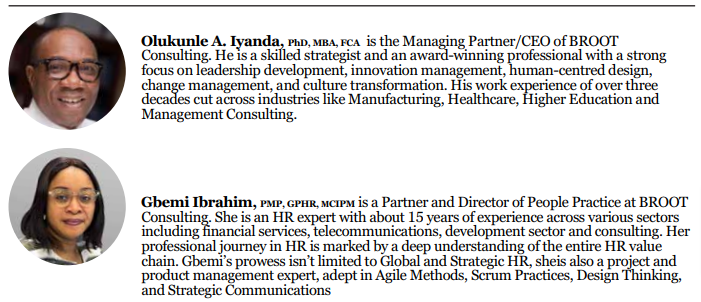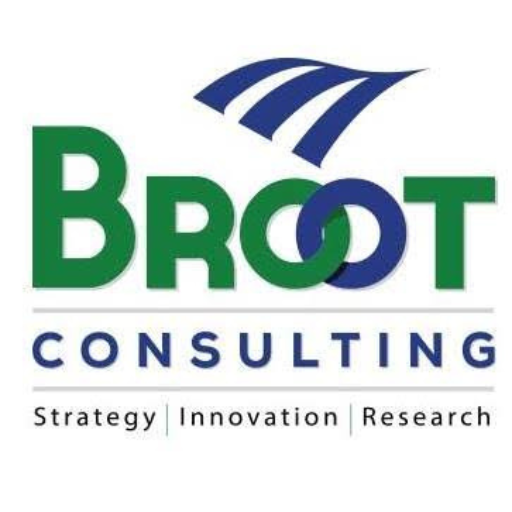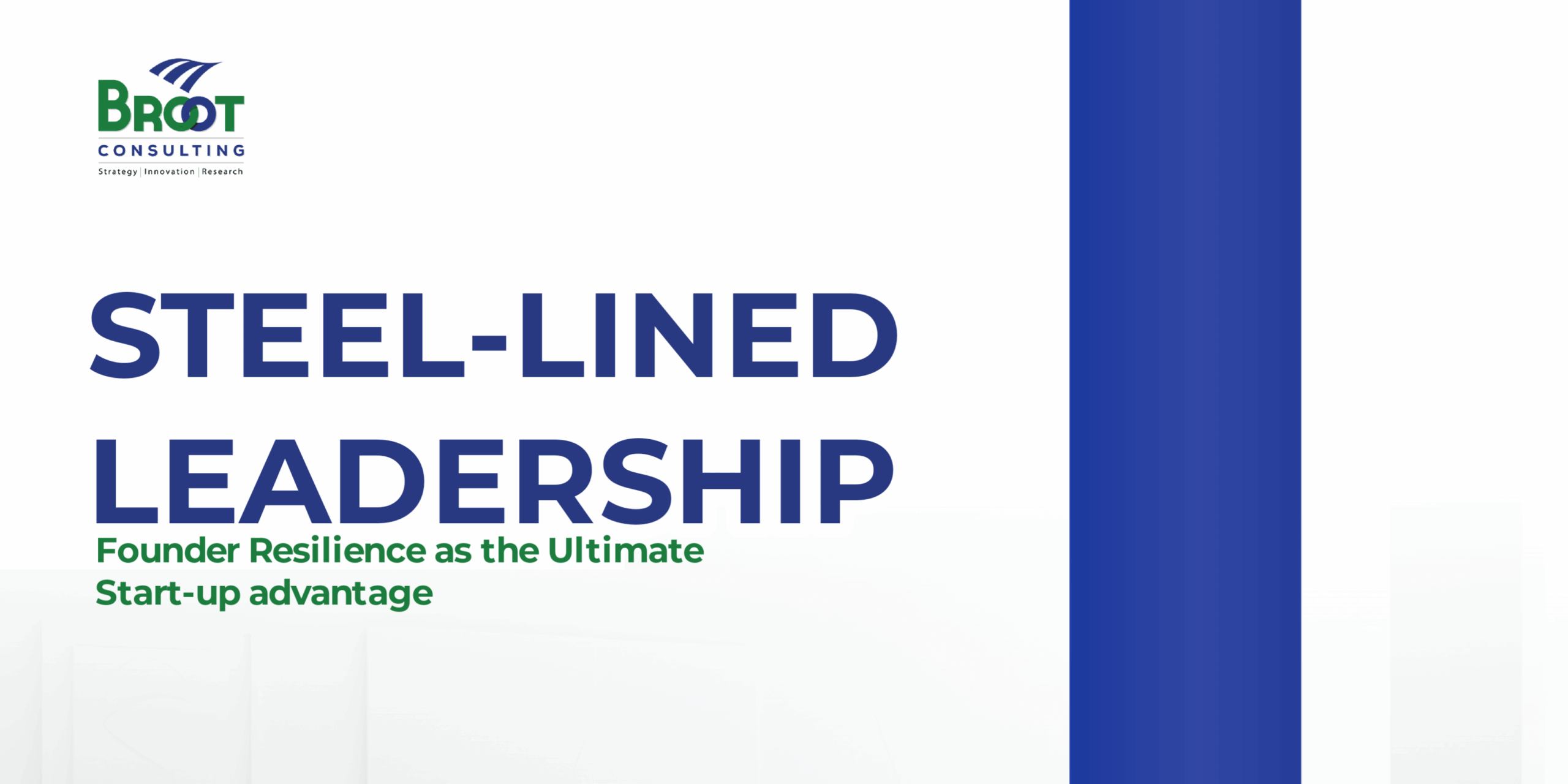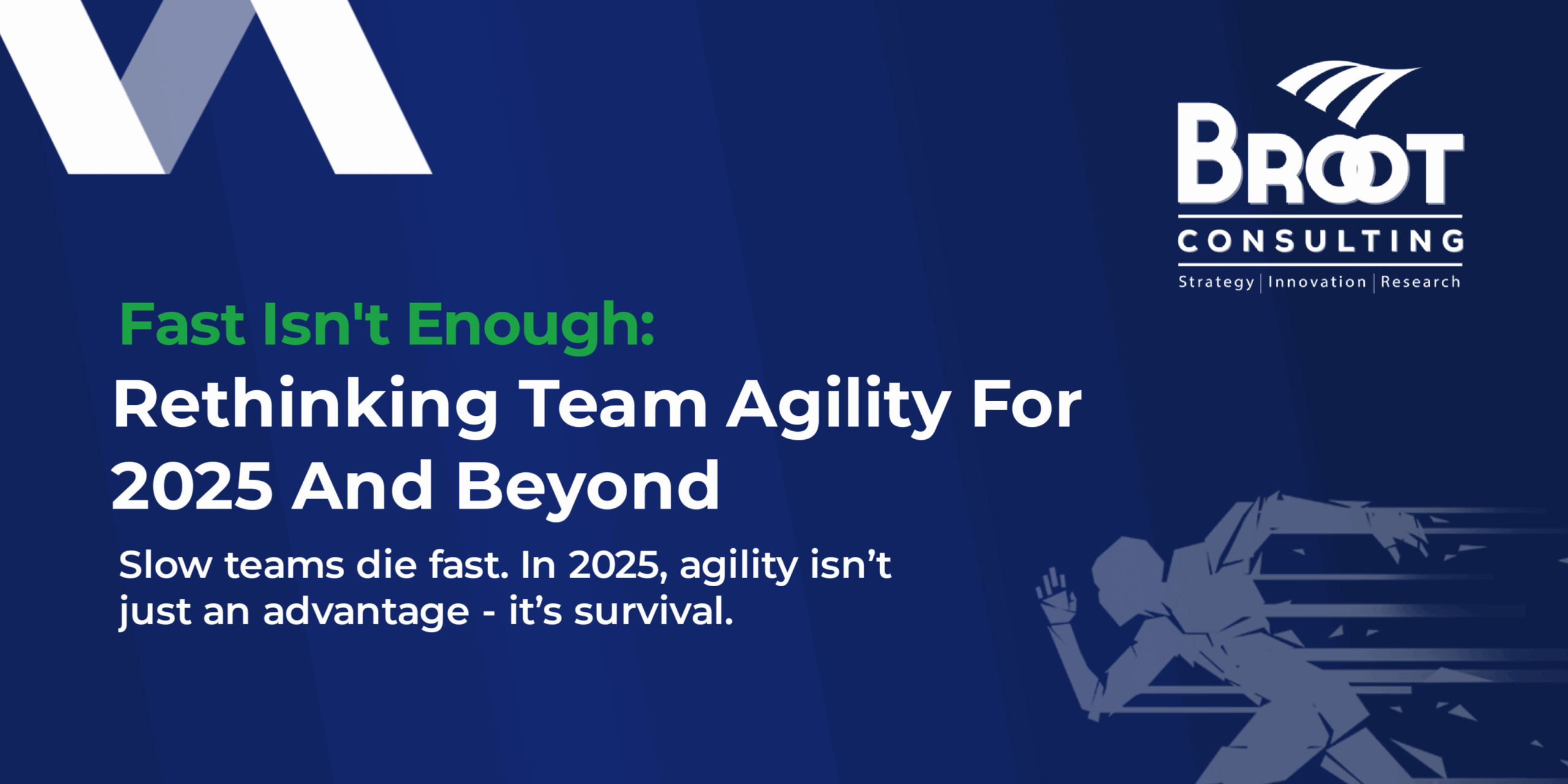Leadership development is an area of significant investment for organizations worldwide. According to a report by Forbes, a staggering amount of money is being poured into leadership development programs, with global spending reaching $370 billion. This figure is comparable to the GDP of major economies like South Africa. Despite this enormous investment, the effectiveness of these leadership development programs remains a subject of debate and scrutiny.
Reports from leading business and management institutions suggest that the outcomes of these programs might not be meeting expectations. A Harvard Business Review highlighted the ambiguity surrounding the returns on these leadership development investments for the leaders and their teams. This uncertainty raises questions about the actual impact and effectiveness of these initiatives.
Further adding to the concern, data from McKinsey indicates that many leadership programs fall short of producing the desired results. In a survey conducted by Fortune Magazine, a mere 7% of leaders expressed confidence in their ability to develop effective leadership within their organizations. This gap between investment and outcome in leadership development points to a need for reevaluation and, potentially, a shift in approaches to cultivating leadership skills and capabilities. High-performance organizations are sternly focused on developing leaders who lead beyond the call of duties, leaders with a Shepard mentality, leaders with empathic views and leaders who offer hope beyond the shackles of disruptions and complex operational landscapes. Ask employees of organizations or citizens of every country. Most of them believe that leadership is the significant problem confronting their institutions.
The good intentions of management, as evidenced in the colossal sum spent on leadership development programs notwithstanding, why is achieving authentic leadership such a big and daunting issue for organizations? How can institutions effectively turn the tide to achieve better results? What exactly does leadership accomplish?
Changing the Tide: In this article, we shifted the focus from what leaders should do to understanding what they should not do. Leadership positions in corporations and institutions are powerful; unfortunately, the allure of that office is also the Achilles’ heel for many leaders. How can the consciousness of understanding what not to do facilitate effective leadership? Most of the issues that leaders are accused of bother on:
- Ineffective leading and poor direction.
- Poor communication
- Inability to develop competent, committed, and disciplined followers.
- Poor accountability, weak morality, and unethical practices
- Inability to lead by example and facilitate empathic change.
- Poor vision and inability to effectively execute strategy
So, what are the factors contributing to the above challenges? How can a leader learn how not to lead? How will the consciousness of what not to do as a leader lead to personal transformation for the greater good of the people you lead?
Leadership in Nutshell
Leadership is an intricate tapestry woven from numerous threads: decision-making, strategic thinking, and the ability to motivate and inspire. However, at its core, leadership is fundamentally about learning. This concept often gets overshadowed by the traditional portrayal of leadership as an inherent ability or a reward for hard work. Yet, in essence, leadership is a continuous journey of self-discovery, adaptation, and growth. It is about understanding that the role of a leader is not static; it is dynamic and ever-evolving.
Leadership is about influence. It is the ability to inspire others to become a better version of themselves. So, leadership is not a destination earned by long years in a corporate space, but it is a skill to be continually developed. In other words, leadership is a journey; anybody can be a leader from any position. Suffice to say leadership is not a title nor a designation. However, it is a power-skill. A leader should be able to connect, transform and inspire others for results, thereby positively affecting their character, behaviours and development.
The notion that leadership equates to simply being at the helm is a limited perspective. Authentic leadership encompasses the ongoing process of learning – about oneself, the team, the environment, and the ever-changing challenges and opportunities these present. It is about recognizing that each day offers new lessons and that each decision and interaction is a chance to grow and refine one’s leadership skills.
In today’s world, where change is the only constant, a leader’s ability to learn and adapt is more crucial than ever. New technologies emerge, market trends shift, and workforce dynamics evolve. In such a scenario, clinging to outdated methods or resting on past laurels is ineffective and potentially detrimental. Leaders must, therefore, cultivate a mindset of perpetual learning – being open to new ideas, willing to question old practices, and ready to embrace new challenges.
Moreover, leadership as learning extends beyond personal growth. It also involves fostering a culture of learning within the team or organization. This means imparting knowledge and skills and encouraging curiosity, innovation, and excellence among team members. A leader, thus, becomes a facilitator of learning, creating an environment where continuous improvement is the norm and every team member feels empowered to contribute their best.
This underlines the idea that effective leadership is not just about possessing certain qualities or reaching a position of authority. It is about a relentless pursuit of knowledge, understanding, and self-improvement. It is a journey where the destination is not a fixed point but a path of constant evolution. This article delves into why leadership is more about learning than just leading, highlighting the importance of adaptability, empathy, and knowledge in effective leadership.
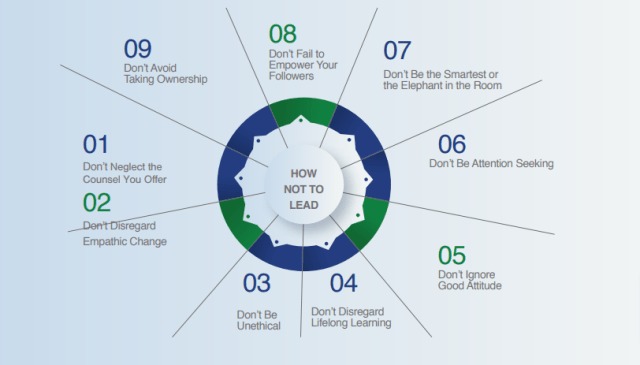
Learning in Leadership: The Don’ts
- Don’t Disregard What You Preach:
Many leaders, unfortunately, fall into the trap of using their words more for manipulation than for inspiration, leading to a gap between what they say and what they do. This inconsistency is a direct path to ineffective leadership, as it breeds distrust among followers. Authenticity in words and actions is fundamental to effective leadership.
Winston Churchill’s leadership during World War II exemplifies the power of aligning words with actions. Before the war, Churchill was not widely regarded as an admirable leader in the UK. However, his steadfastness and commitment to his words during the war earned him great respect. His famous declaration, “Never give in. Never give in. Never, never, never – in nothing, great or small, large, or petty – never give in, except to convictions of honour and good sense. Never yield to force. Never yield to the overwhelming might of the enemy,” epitomizes the essence of his leadership. He lived by these words, exemplifying strength and resilience, which inspired a nation.
This example highlights a crucial lesson for leaders: the importance of not shirking personal accountability. A leader’s words should be a reflection of their actions, and vice versa. When leaders fail to uphold this principle, they risk losing the trust and respect of those they lead. Therefore, it’s vital for leaders to practice what they preach and to hold themselves accountable for their commitments and promises.
- Don’t Disregard Empathic Change
In a rapidly evolving world, adaptability to change is a crucial trait for leaders. Embracing change is essential for thriving in today’s dynamic work environment. This reinforces the importance of leaders being continuous learners and maintaining flexibility. In an era of rapid technological shifts and global interconnectivity, leaders must inspire and align their teams around a shared vision, demonstrating the ability to listen, relate, connect, and inspire.
Statistics indicate that as many as 70% of change initiatives fail. Based on experiences working with clients and coaching executives, a key reason for this difficulty in facilitating change is the lack of empathy in many leaders’ change strategies. Empathy is fundamental to connecting with followers and achieving results, as it fosters understanding and trust.
Ignoring the need for empathy and continuous learning is not conducive to effective leadership in an age of constant disruptions. Leaders who view change as an obstacle fail to recognize it as an opportunity for growth and innovation. Effective leadership in the modern world requires a flexible, curious mindset and an openness to new experiences. It involves proactively identifying emerging trends and challenges, questioning established norms, and bravely exploring new possibilities.
Leaders should not cling to outdated ideas or practices, dismiss the contributions of others, or feel threatened by the talents of their team members. Recognizing and nurturing potential, being open to diverse viewpoints, and encouraging innovation is vital to leading successfully in this era of continuous change. Leaders should see change not as a hurdle but as a catalyst for growth and long-term organizational success.
- Don’t Be Unethical
Accountability, strong moral values, and ethical practices are crucial for effective leadership. Leaders lacking in these areas often find themselves in difficult situations, as evidenced by numerous high-profile cases. The life of Mother Teresa exemplifies the impact of strong accountability and moral integrity. Despite not holding a position of wealth or grandeur, her commitment to helping the destitute gained global recognition. Her famous quote, “Little things are indeed little, but to be faithful in little things is a great thing,” highlights the importance of integrity in all aspects of life.
In contrast, the corporate world has witnessed the downfall of leaders consumed by greed, envy, and unethical behavior. The Enron scandal is a notable example. Top executives like Jeffrey Skilling, Andrew Fastow, and Kenneth Lay were convicted for their roles in one of the largest corporate frauds in history. Their actions represented a severe breach of corporate ethics and greed.
Similarly, in the political realm, accountability and ethical governance are vital. Allegations of financial mismanagement or lack of transparency can lead to severe consequences. For instance, issues surrounding the audit practices of the Central Bank of Nigeria under the administration of Godwin Emefiele highlight the importance of accountability in public office.
These examples serve as reminders that long-term leadership success is closely tied to maintaining high ethical standards, being accountable, and upholding strong moral values. Ignoring these principles can lead to personal downfall and widespread negative impacts on organizations and society.
- Don’t Disregard Lifelong Learning
Lifelong learning is key to effective leadership, embodying a commitment to ongoing personal and professional growth. Leaders who embrace continuous learning constantly strive to enhance their skills, expand their knowledge base, and deepen their understanding of their surroundings. This commitment involves engaging in reflective practices, actively seeking feedback, and being open to constructive criticism. Such an approach ensures leaders stay effective, relevant, and inspiring.
The process of self-improvement in leadership isn’t limited to personal growth but also sets a positive example for team members, encouraging them to pursue their development paths. This kind of leadership fosters a learning culture within an organization, where personal and professional growth are valued and supported.
Effective leaders also practice vertical and horizontal learning, understanding that valuable lessons can come from various sources. This includes learning from superiors and subordinates, people of different ages, social and economic backgrounds, and from both historical and contemporary leaders. Embracing diverse perspectives and experiences prevents leaders from becoming insular or stagnant in their approach.
Leaders who neglect to learn across these divides often find their performance suffering. They miss out on the rich insights and fresh ideas from a broad and inclusive approach to learning. In today’s rapidly changing world, the ability to learn and adapt is more crucial than ever for leaders aiming to guide their teams successfully.
- Don’t Ignore Good Attitude
A positive attitude significantly impacts a leader’s effectiveness. Leaders who embody optimism and resilience set a strong foundation for their leadership journey. Such leaders are adept at forging robust relationships with their teams, enhancing trust, and facilitating greater influence. Leaders with the right attitude avoid negative traits like greed and self-centeredness, which can lead to distrust and disunity. Thoughtfulness and a behaviorally-minded approach are essential for a leader, as the lack thereof can devastate their leadership effectiveness. Successful leadership involves learning from past and present leaders and avoiding the pitfalls of greed, selfishness, and disregard for the welfare of those they lead.
The reign of Commodus over the Roman Empire serves as a cautionary tale. Despite being groomed for leadership by his father, Marcus Aurelius, Commodus’s reign marked the start of decline for Rome, primarily due to his selfishness and cruelty. His lack of respect for others and indifference to the citizens’ welfare ultimately led to his downfall. His reign starkly contrasts with the wisdom of his father, Marcus Aurelius, who emphasized values like humility, mindfulness, and the transience of life. Such wisdom, encapsulated in Aurelius’ meditations, underscores the importance of leaders being open to continuous learning and personal growth beyond formal education or training. Effective leadership goes beyond just skills and knowledge; it embodies a continual pursuit of personal growth, learning from diverse experiences, and maintaining a positive, growth-oriented attitude.
Leadership is not a solitary journey. It involves learning from others – team members, peers, mentors, and competitors. Effective leaders understand that everyone has something to teach them, and they actively seek out opportunities for collaborative learning. Learning from others involves listening actively, being empathetic, and being open to feedback, all crucial for personal growth and effective leadership.
- Don’t Be Attention Seeking
Leadership positions confer enormous power on the occupier of the position. Every leadership position is a prominent and enviable position. In a world of extreme competition and technological advancement, we have seen leaders embark on the perilous journey of attention-seeking and doing all in their power to manipulate people to achieve it. To be an effective leader means you need to shun attention-seeking and attention-grabbing, especially if such is only meant to launder your image and not that of your organization’s mission. Leaders with an attention-seeking mentality are often distracted from organizational goals, missions, and values. In the long run, attention-seeking leaders perform poorly than publicity-shy leaders. Among mission-minded and publicity-shy leaders are Amancio Ortega Gaona, the founder of the famous Zara clothing brand, Mike Adenuga, Nigeria Business Mogul, and the second richest man in Nigeria. To lead effectively, call attention to the mission and values, not yourself. Amancio Ortega seldomly grants interviews. Today, more is known about his brand than his person.
- Don’t Be the Smartest or the Elephant in the Room
As a leader, there is always the temptation to want to act brilliantly with an elephant-in-the-room mentality. Many leaders embrace this approach because they believe it will enable them to exert their authority. Leaders who act like the elephant in the room often subdue the opinion of others and always take credit for a good outcome and blame others for a bad outcome. When leaders act as the most brilliant in the room, they stifle innovation, unknowingly heightening risk exposure. Such a mentality intimidates colleagues. Effective leadership should encourage Feedback and Open Dialogue. This involves creating a safe space for team members to share their thoughts, concerns, and suggestions. A leader needs to praise a job well done or provide constructive feedback for activities or areas that require improvement.
- Don’t Fail to Empower Your Followers
Empowering team members is a hallmark of agile leadership, and one of the most effective ways to achieve this is by boosting their self-esteem. A leader’s encouraging words can have a profound impact, especially in a stressful and challenging world. These expressions of support and recognition can significantly enhance a team member’s sense of worth and confidence.
Creating an environment conducive to high performance is also crucial. This involves clear communication, providing the necessary tools and resources, and fostering a supportive work culture. Such an environment not only aids in enhancing team effectiveness but also bolsters individual self-esteem.
An empowered team is one where micromanagement becomes unnecessary. Team members, buoyed by a sense of trust and confidence from their leader, are more inclined to take calculated risks and innovate. This drive towards exceptional achievements directly results from feeling valued, capable, and trusted. Thus, a leader who focuses on building the self-esteem of their team sets the stage for remarkable accomplishments and a dynamic, innovative work environment.
- Don’t Avoid Taking Ownership
Maintaining ownership of tasks, even those delegated, is crucial in leadership. A key aspect of effective leadership is accepting responsibility for your team’s outcomes. This sense of responsibility encourages leaders to stay engaged with tasks they’ve assigned to others. However, this approach should not be confused with micromanagement. Rather, it’s about providing consistent follow-up, updates, and support, ensuring the team feels guided and assisted rather than controlled. This balance allows team members to grow and develop within their roles, fostering a sense of trust and collaboration.
Conclusion
Leadership is a multifaceted process that goes beyond the traditional notion of leading. It is about learning – learning to adapt, learning to understand others, learning to stay informed and relevant and above all, learning to be human. A true leader recognizes that their journey involves continuous learning and self-improvement. This mindset benefits the leader and inspires those around them, creating a culture of growth and excellence.
